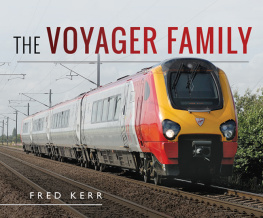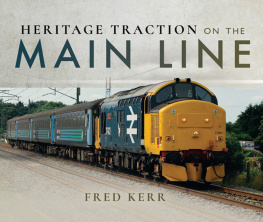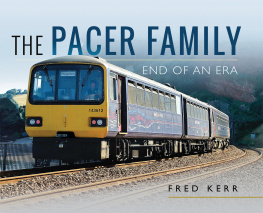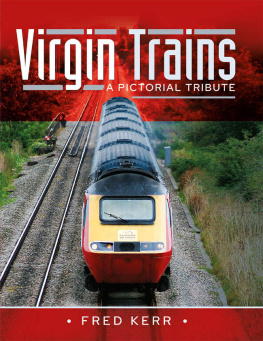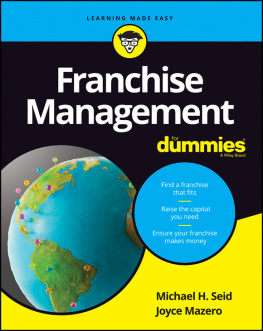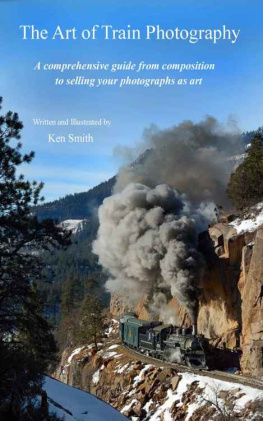
THE VOYAGER FAMILY
THE VOYAGER FAMILY
Fred Kerr
First published in Great Britain in 2018 by
Pen & Sword Transport
An imprint of
Pen & Sword Books Ltd
47 Church Street
Barnsley
South Yorkshire
S70 2AS
Copyright Fred Kerr 2018
ISBN 978 1 52673 144 9
eISBN 978 1 52673 145 6
Mobi ISBN 978 1 52673 146 3
The right of Fred Kerr to be identified as Author of this work has been asserted by him in accordance with the Copyright, Designs and Patents Act 1988.
A CIP catalogue record for this book is
available from the British Library.
All rights reserved. No part of this book may be reproduced or transmitted in any form or by any means, electronic or mechanical including photocopying, recording or by any information storage and retrieval system, without permission from the Publisher in writing.
Pen & Sword Books Limited incorporates the imprints of Atlas, Archaeology, Aviation, Discovery, Family History, Fiction, History, Maritime, Military, Military Classics, Politics, Select, Transport, True Crime, Air World, Frontline Publishing, Leo Cooper, Remember When, Seaforth Publishing, The Praetorian Press, Wharncliffe Local History, Wharncliffe Transport, Wharncliffe True Crime and White Owl.
For a complete list of Pen & Sword titles please contact
PEN & SWORD BOOKS LIMITED
47 Church Street, Barnsley, South Yorkshire, S70 2AS, England
E-mail:
Website: www.pen-and-sword.co.uk
Front Cover: Class 220 220015 Solway Voyager awaits departure from Edinburgh Waverley on 10 November 2004 with a service to Aberdeen.
Rear Cover: Class 220 Voyager trainset 220004 Cumbrian Voyager descends through Greenholme on 6 April 2007 whilst working a southbound Cross Country service.
I n 1996 Virgin Trains was awarded the Inter City Cross Country franchise to run from 5 January 1997 until November 2007. When the franchise began, its services were operated by a mix of traction including ailing Class 47 diesel locomotives traversing non-electrified routes and ageing Class 86 electric locomotives travsersing electrified routes.
As part of the franchise agreement, the Cross Country services called for a fleet of new trainsets, resulting in the ordering of thirty-four 4-car trainsets designated Class 220 and forty 5-car + four 4-car trainsets with tilt mechanism for 125 mph operation designated Class 221; classified as Voyager and Super Voyager respectively these were ordered from Bombardier Transportation which built them at its Bruges factory in Belgium.
The new trainsets began to be delivered from mid-2001 and, once driver and artisan training had been completed, they began to replace the current mix of locomotives to provide a more standard fleet. The timetable was also rewritten and, under the title of Operation Princess, Virgin Trains launched it in September 2002 based on clock-face schedules with shorter trains but more frequent services. The new timetable, however, proved to be too optimistic and a combination of technical faults with the trainsets, coupled with infrastructure and train capacity problems, led to the cutting of less-used services during 2003 in order to maintain the main services at a higher level of reliability.
In 2006 the Department for Transport (DfT) decided to restructure the Virgin Trains franchises and create a revised one for Cross Country services; although Virgin Trains was one of the contenders for this, the DfT awarded the franchise to Arriva Trains on 10 July 2007 with a start date of 11 November 2007. As part of the takeover the Class 220 fleet and twenty-three Class 221 trainsets were transferred to the new operator where they remain in service as at June 2017.
The next purchaser of Voyager trainsets was Midland Mainline, owned by National Express, whose franchise ran from April 1996 to November 2007 covering services from London St Pancras. In February 2002 the company sought to extend services to Leeds and ordered seven 9-car and sixteen 4-car trainsets based on the Voyager design; designated Class 222 the company classified them as Meridian but design changes meant that the Meridian trainsets could not couple up to the Voyager trainsets. The Strategic Rail Authority (SRA), however, subsequently refused to allow the proposed service extensions or sanction the operation of the 9-car trainsets thus delaying their introduction into traffic until 31 May 2004.
The increase in traffic, however, saw the units being reformed in 2006 and they were initially retained by Stagecoach Group, trading as East Midland Trains (EMT), when it took over the franchise in November 2007. Shortly after the takeover EMT reconfigured the trainsets once more and the fleet still operates in this form as at June 2017.
The final purchaser of Voyager trainsets design was Hull Trains (HT), an Open Access operator which began operations in December 2000 to provide a service between Hull and London Kings Cross. Traffic increased quickly and the company ordered four 4-car Meridian trainsets that were classified Class 222.1 and designated as Pioneer when they entered service in 2005. The four trainsets were subsequently transferred to EMT in 2009 when HT arranged to lease surplus Class 180 trainsets to meet the increasing demand for its services.
Fred Kerr
November 2017

A Class 220 trainset curves out of Newcastle on 12 March 2004 with a northbound Cross Country service to Edinburgh.
Section 1:
Class 220 Voyager
1.1: Virgin Trains
The thirty-four Class 220 Voyager trainsets were ordered by Virgin Trains as part of the franchise agreement and formed part of an order that included the Class 221 Super Voyager trainsets [see Section 2 ] and Class 390 Pendelino tilting trainsets to replace the mix of trainsets operating services on the West Coast Main Line (WCML). The Cross Country services were operated by a mix of traction including Class 43 HST trainsets, Class 47 diesel locomotives and Classes 86, 87 and 90 electric locomotives with some journeys being worked by diesel traction throughout, some with changes between diesel and electric traction en route and some with electric traction throughout. The majority of Cross Countrys longer distance services involving locomotive changes en route or using Class 47 locomotives were the first services for which the Class 220 trainsets entered traffic as direct replacements. The Voyager order was set to speed up services by eliminating traction changes en route whilst improving efficiency by operating a standard fleet; the trainsets were built by Bombardier at their Bruges factory in Belgium and deliveries began during 2001. As part of the contract the trainsets were maintained at a dedicated site at Central Rivers (Barton under Needwood) by Bombardier; this continued when the Cross Country franchise was awarded to Arriva Trains in November 2007 and still operates as at June 2017.
In September 2002 Virgin Trains rolled out a new timetable for its Voyager fleet under the title of Operation Princess which set Birmingham New St as a hub through which services were operated to a clock-face timetable using shorter trainsets on more frequent services. The scheme failed because of both technical problems with the trainsets and operating problems with the infrastructure that resulted in some services being withdrawn during 2003 to protect the core services especially the longer distance ones.

